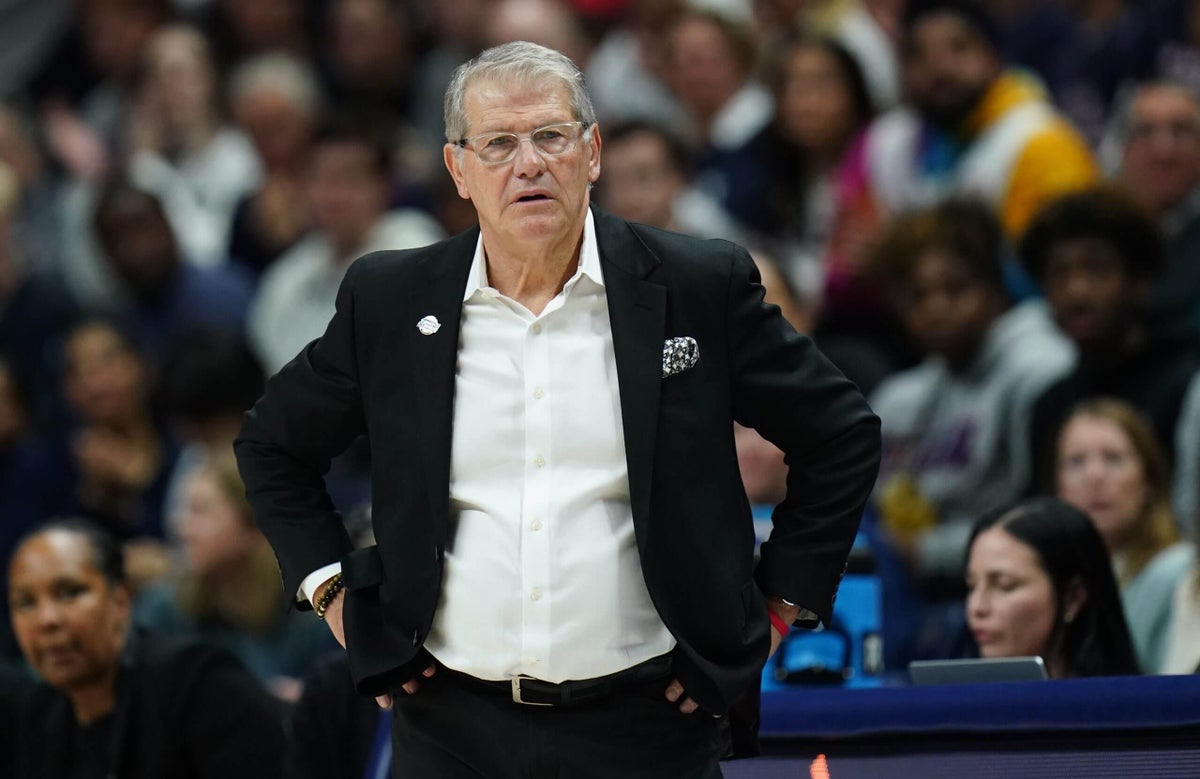UConn coach Geno Auriemma criticized the NCAA’s super regional format ahead of their Sweet 16 game against Oklahoma, calling it detrimental to the sport. Since the shift to two-site regionals in 2023, teams face logistical challenges like sharing practice venues and limited accommodations. Auriemma lamented the early practices and noted that winning teams endure long travel to the Final Four, complicating preparations. Despite recent increases in attendance, the new format, which remains until 2028, has not benefited teams from the West, none of whom have won the championship recently. Future regional sites still present travel challenges.
SPOKANE, Wash. — This marks the third consecutive year that UConn has traveled to the Pacific Northwest for the NCAA Tournament super regional, and the experience remains as frustrating as ever.
As the Huskies prepare for their Sweet 16 matchup against No. 3 Oklahoma on Saturday, head coach Geno Auriemma has once again expressed his dissatisfaction with the two-site regional format, a consistent point of irritation since UConn’s trip to Seattle in 2023.
“Whoever devised this super regional concept — and I know who it is — has ruined the game. They truly have. They have ruined the game,” Auriemma stated. “Half the country can’t attend a game in person. Yet, you’re raking in billions from TV. Well, actually, that would be the men’s tournament. So yes, there are numerous issues that need addressing.”
The NCAA transitioned from four regional sites to two in 2023 to combat declining attendance. While crowds have increased, the consolidation of teams into fewer locations has led to logistical complaints regarding shared court space, hotel availability, and travel schedules.
The Huskies had a one-hour practice scheduled for 8 a.m. Friday to make room for the four Spokane 4 Regional teams needing practice time at the arena, along with an additional four Spokane 1 teams requiring shootaround time prior to their games that evening. On Saturday, they’ll have an even earlier shootaround as the games kick off earlier in the day.
“In a normal world, governed by normal people, there would only be four teams present,” Auriemma remarked. “This would mean there wouldn’t be any games today; they would be held tomorrow. Consequently, we wouldn’t have to wake up at 6 a.m. for an 8 o’clock practice or get up at 5 a.m. for a 7:30 shootaround. Does it really take us longer to clear security than to actually be on the court?”
The super regional also poses additional travel challenges primarily for the winning teams in Spokane, who will have to endure a cross-country journey (the second such trek within a week if UConn advances) to Tampa, Florida for the Final Four. Since 2017, the women’s tournament has shifted the Final Four days from Sunday-Tuesday to Friday-Sunday, resulting in teams competing in the Elite Eight on Monday having even less time to prepare for the national semifinals. In contrast, the men’s tournament concludes its Elite Eight on Sunday before the Final Four on Saturday.
Travel could theoretically be more straightforward if tournament locations were more centrally located, but that has not been the case during the initial three years of the super-regional format. In the past two seasons, none of the teams advanced from the West super regional have captured the national championship, and only Iowa in 2023 reached the national title game, although the sample size remains too small for any definitive conclusions.
This format is set until 2028. The 2026 venues of Sacramento, California, and Fort Worth, Texas, leading to a Phoenix Final Four are more geographically sensible, yet the regional victors in Las Vegas in 2027 and Portland, Oregon, in 2028 will again face long travels to Columbus, Ohio, and Indianapolis, respectively, for the subsequent rounds.
(Photo: David Butler II / Imagn Images)
